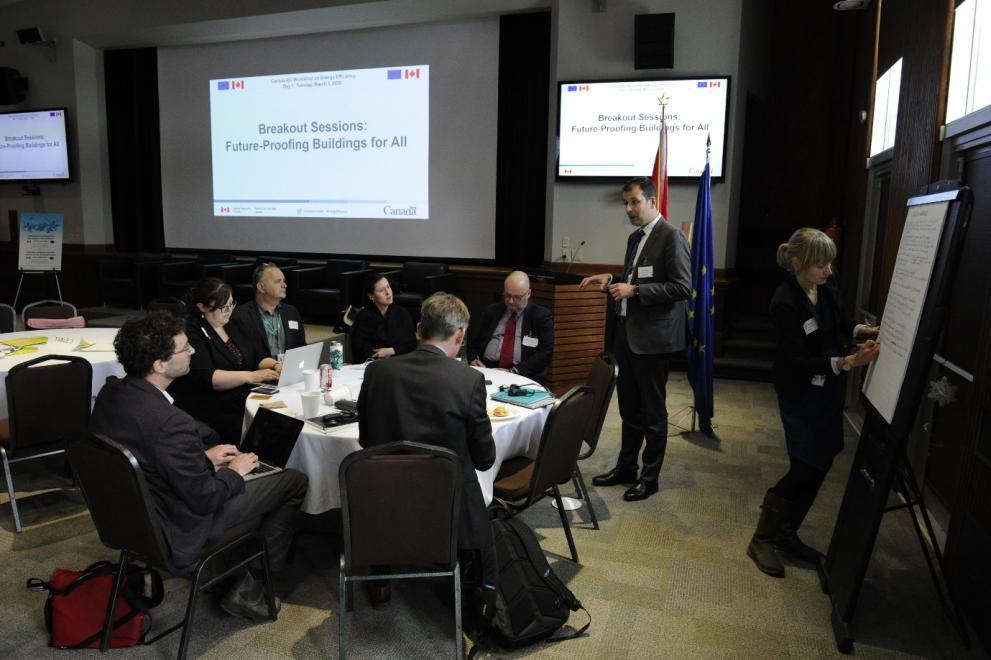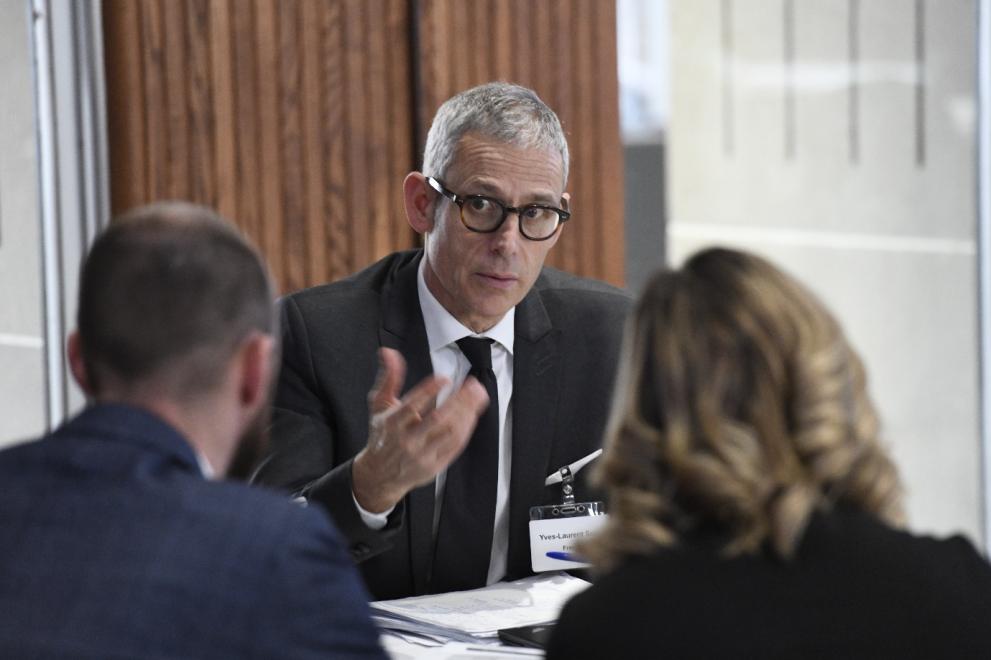
On March 4th in Ottawa, the EU and Canada affirmed their determination to put into action energy efficient solutions in buildings at all levels of governance to address the climate challenge at a joint workshop organized by the European Commission and Natural Resources Canada (NRCAN).
The European and Canadian policymakers, national and local experts shared best practices, including governance and political agenda setting in the context of the “Clean Energy for All Europeans” Package and the EU Green Deal. Participants also explored ways to ensure energy efficiency measures in buildings and homes through legislative and non-legislative measures, building on the experience of implementing energy efficiency measures in buildings and homes in the EU countries.
Energy-efficiency retrofits can achieve significant benefits in terms of energy savings and carbon reduction. Today, buildings account for 11% of CO2 emissions in Canada and 36% of emissions in the EU, and have been identified as a priority in both regions. Benefits beyond energy savings, such as increased comfort and wellbeing, and better air quality need to be transposed into policies and programmes.
Klaus-Dieter Borchardt, Deputy Director General, Directorate-General for Energy of the European Commission, said: “We are delighted to exchange with our Canadian colleagues on energy efficiency, and share good practices that have worked in Europe. The European Commission is keen to cooperate with key partners in order to promote the uptake of energy efficient solutions that will help countries speed climate neutrality and meet their respective targets as defined under the Paris Agreement.”
Seamus O’Regan, Minister of Natural Resources, Canada, underlined that: “We are very pleased to exchange with our European counterparts in a field that yields high potential to achieve climate targets. Capitalizing on knowledge and good practice from outside Canada’s borders is essential to understanding what strategies will best work for Canadians, for people, and for the planet.”
The European Union is committed to sustain cooperation and build partnerships and alliances to achieve the climate objectives, by promoting cooperation between the EU and non-European major economies. In this context, the EU has established, under its Partnership Instrument, managed by the Service for Foreign Policy Instruments, a Strategic Partnership for the Implementation of the Paris Agreement (SPIPA) to promote bilateral dialogues and cooperation in the field of climate action between the EU and 15 other major economies (Argentina, Australia, Brazil, Canada, China, Mexico, India, Indonesia, Iran, Japan, Russia, South Africa, South Korea, Saudi Arabia, and USA), favouring concrete interventions in line with the global ambition level set by the Paris Agreement. The Canada-EU workshop was organized within the framework of the SPIPA programme, with the support of the Buildings Performance Institute Europe (BPIE).

Find out more:
Details
- Publication date
- 5 March 2020
- Author
- Service for Foreign Policy Instruments
